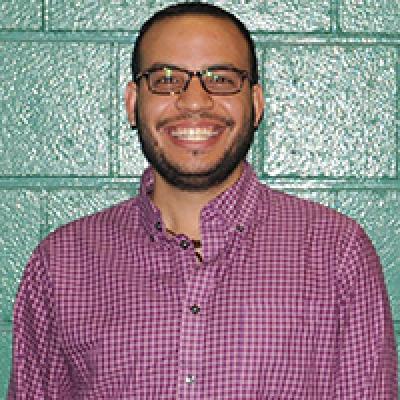Dr. Amin Pérez
Dr. Pérez is an Assistant Professor at the Universidad Autómona de Santo Domingo (UASD) in the Dominican Republic; he is affiliated with the EHESS-Ecole des hautes études en sciences sociales (School of Advanced Studies in the Social Sciences), at the Institut de Recherche Interdisciplinaire sur les enjeux Sociaux (Institute for Interdisciplinary Research on Social Issues) in Paris. Dr. Pérez was born in the Dominican Republic, where he earned his high school diploma; then earned his Bachelor's degree in Sociology in France; followed by a master's degree at ENS Paris in Sociology and History. He completed his doctoral degree at the Ecole des hautes etudes (School for Advanced Studies in the Social Sciences). His dissertation focused on the process of Algeria's colonization by France, and later immigration of Algerians to France, analyzing the political role of intellectuals in the colonial and postcolonial period. Dr. Pérez came to conduct research at CUNY DSI on July 2015. He spoke to us about his past research and current endeavors at CUNY DSI.
During his undergraduate career, Dr. Pérez received intellectual guidance and encouragement from Brazilian priests involved in the Liberation theology movement who he had met at the library. Moving forward, his interdisciplinary master's program offered the opportunity for more hands-on engagement than the typical French university experience, giving him access to professors who were themselves engaged in research topics related to his own; as a result, helping him define his research questions and strategies. After reading extensively about Haitians in Santo Domingo, he became interested in comparing their situation with that of Algerian immigrants in France.
The political role of intellectuals remains an important theme in Dr. Pérez's research. "In France, there is a disconnect between scholarship and politics. That's why when Max Weber was translated from German into French, his work was distorted beyond recognition." Dr. Pérez aims to show how scholarship and politics can be combined; on the other hand, his work also works to challenge the structures of academia that impose limitations on combining politics and scholarship as a form of analysis. This issue is important to him because he is also concerned about ideological repression of the academy in the Dominican Republic.
The issue of immigration, Dr. Pérez says, is another topic where scholarship confronts politics. His current project is about the transformation of Dominican migration. He examines the contextual social origin of migrants as a factor in their experience when they leave for economic, legal, or political reasons, paying particular attention to repeated or chain migration and how that affects the hopes of migrants. Having studied the political characteristics for Dominican immigrants since 1960, Pérez is now interested in looking at legal proceedings involving Dominicans in the U.S. in terms of the various approaches judges take for different cases.
The motivation for Dr. Pérez' research is his own experience as an immigrant student in France. His goal is to produce rigorous academic research, which will be useful to his community. He feels that the study of Dominicans is beginning to thrive now. "I had wanted to re-connect with my Dominican compatriots, in this case Dominicans in the United States. The immigration issue is rather complex, taking into account the role of intellectuals, and the relationship between immigration and the phenomena of social marginalization."
In the CUNY DSI Archives and Library, Dr. Pérez meticulously studied the migration origins and the spaces inhabited by immigrants, in conjunction with interviewing Dominican immigrants in New York.
When asked about the importance of his visit to the Institute and its Archives and Library for his scholarly growth, Dr. Pérez explained that while he was impressed by the sources available there, he was also struck by the lack of oral history of the Dominicans in the U.S., "No collection of their voices," he commented. He had previously succeeded in finding such oral histories in other institutions. On the other hand, he was grateful for the chance to share with other Dominican researchers and explore the potential for collaborative research, including ideas for collaborations between researchers working in the U.S. and those in the Dominican Republic. He believes that such contacts may lead to important projects in the future.
Dr. Pérez will fondly remember his time at CUNY DSI as rewarding, and a place where he encountered a memorable group of researchers working on different aspects of the Dominican experience. "Elsewhere, emigrant communities are scattered for different social reasons, in Europe for instance; but here in New York, there is a greater closeness. These centers are necessary to gather and promote research. In fact, collaboration between these researchers can have a big impact in the Dominican Republic."
Last Updated: 04/21/2025 13:46
